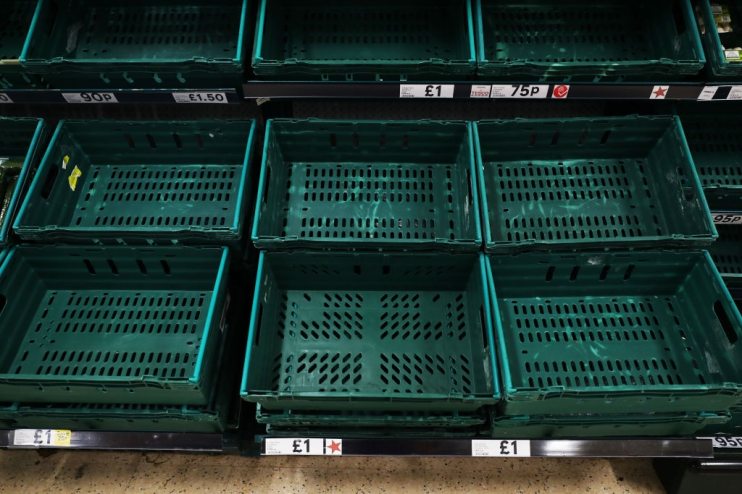Fix lorry driver shortage by hiring furloughed workers, Kwarteng says

The business secretary has written to firms telling them to hire UK-based workers facing an “uncertain future” to solve the current lorry driver shortage.
In a letter to business leaders, Kwasi Kwarteng rejected calls to loosen immigration rules to fix the problem, which is causing shortages of certain food products.
Instead of turning to overseas drivers, which offer only “a short-term, temporary solution”, he said that firms should instead hire those currently still on the government’s furlough scheme.
According to the latest data from the Office of National Statistics, there are still around 2m people on full-time or temporary furlough, with the scheme due to close next month.
Firms should target the “many UK-based workers [who] now face an uncertain future and need to find new employment opportunities”, he wrote.
His letter, which was reported by the FT, came after companies from across the UK’s food chain called on the government to grant thousands of extra one-off visas to solve Brexit-induced supply chain problems that now threaten to ruin Christmas.
Companies and lobby groups representing food production companies from paddock to payment counter want a 12-month visa to be created for HGV drivers and other critical roles that have seen a labour supply crunch.
Everything from shortages of Nando’s chicken, to Arla milk products to McDonald’s milkshakes have come off menus and supermarket shelves as the industry is forced to hike wages to retain driving staff and fulfill orders.
Currently, sector body the Road Haulage Association (RHA) said that the UK is missing around 100,000 drivers.
The combined effect of Brexit and the Covid-19 pandemic prompted many EU nationals working in logistics and haulage to leave the UK and not come back.
As a result, major supermarkets have warned that the Christmas period – traditionally one of the busiest – could face major disruption.
Tesco chair John Allen told the BBC: “We’ve got Christmas around the corner, and in retail we start to stock build really from September onwards for what is a hugely important time of year.
“We’ve got a lot of goods to transport between now and Christmas, and a strong supply chain is vital for everyone. The reason for sounding the alarm now is that we’ve already had one Christmas cancelled at the last minute. I’d hate this one to be problematic as well.”